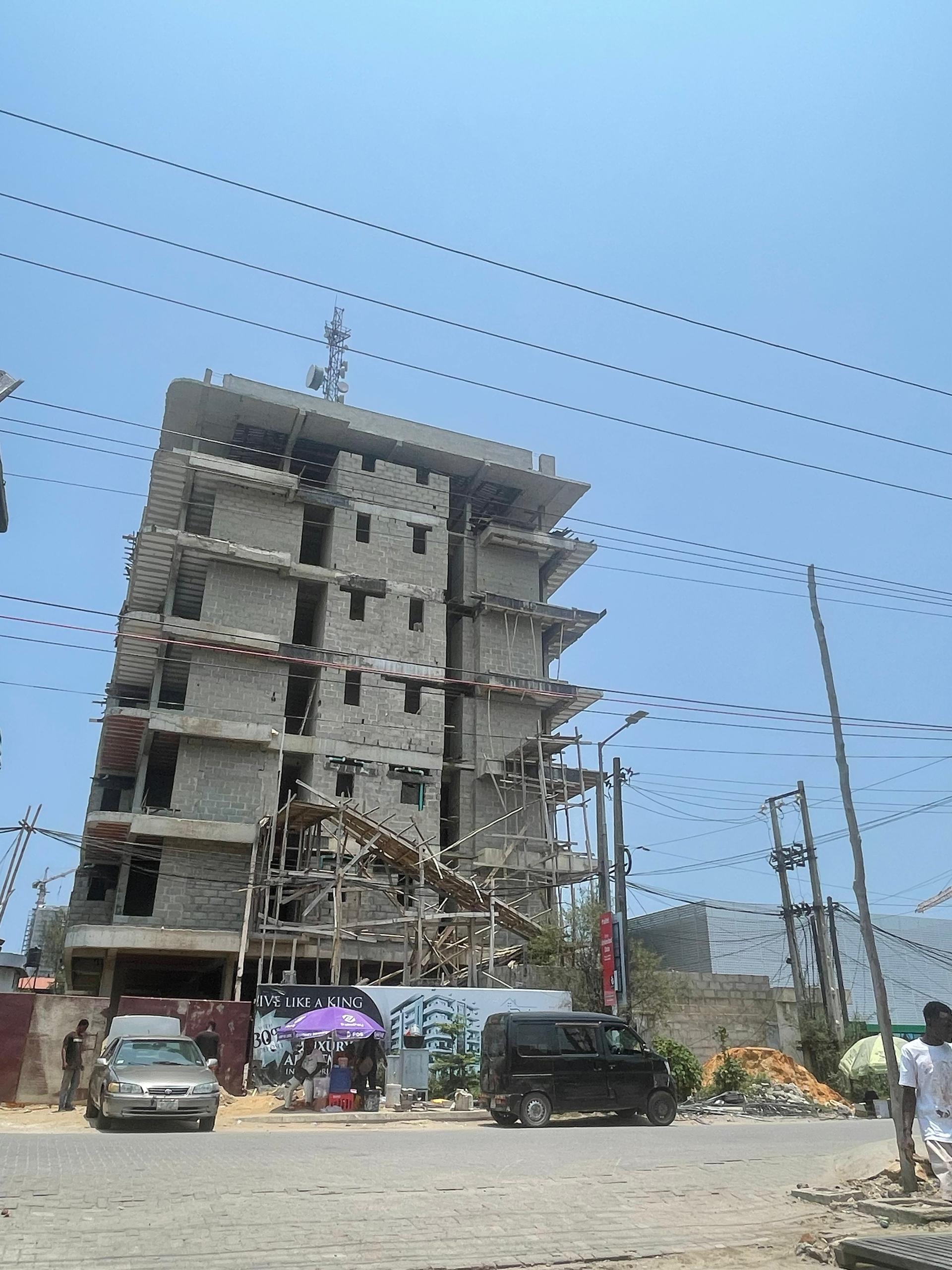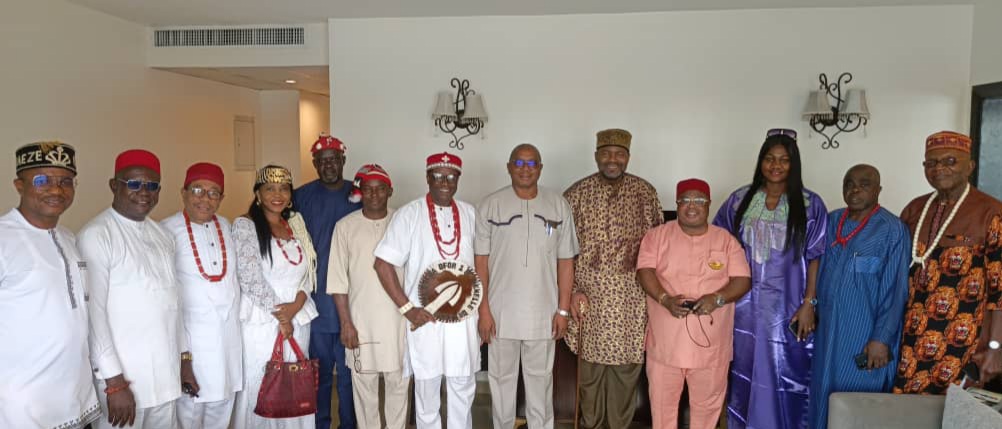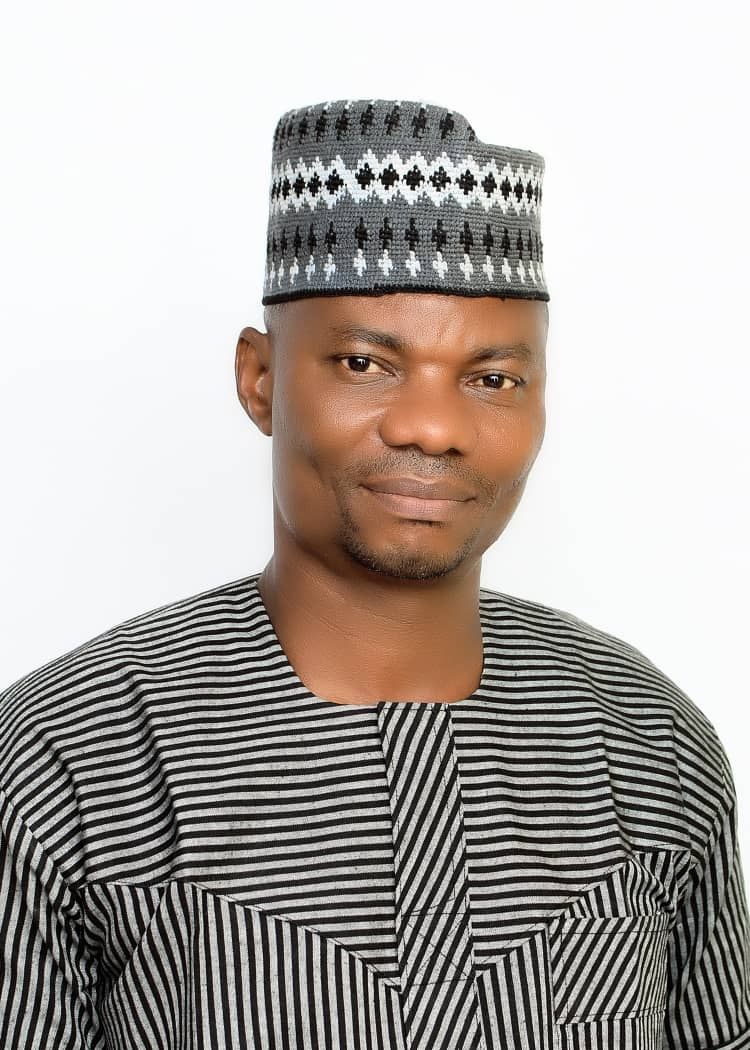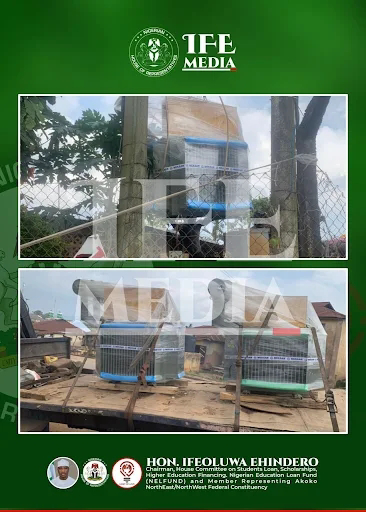In a powerful call to action, Vice President Kashim Shettima, Minister of Finance Wale Edun, and Central Bank of Nigeria (CBN) Governor Olayemi Cardoso have joined forces with Kevin Ugwuoke, President of the Chartered Risk Management Institute of Nigeria (CRMI), to advocate for a transformative shift toward embedding risk management as a core cultural value across Nigeria. Speaking at the 24th Annual International Conference of the CRMI in Lagos, themed “Global Risks, Local Solutions,” these leaders underscored the critical role of risk management in safeguarding Nigeria’s economic stability amid a volatile global landscape. Held on August 28, 2025, the conference provided a platform for policymakers, regulators, and industry leaders to address the multifaceted risks facing Nigeria, from climate change and cybersecurity to economic instability and disruptive technologies. This article explores the key messages delivered at the conference, the broader context of Nigeria’s risk landscape, and the implications of embedding risk management as a national culture.
A Unified Call for Risk Management as a National Priority
The 24th Annual International Conference of the CRMI, held in Lagos, Nigeria’s commercial hub, brought together a diverse group of stakeholders to discuss the pressing need for robust risk management strategies in an era of global uncertainty. Vice President Kashim Shettima, represented by Nurudeen Zauro, Technical Adviser to the President on Economic and Financial Inclusion, delivered a compelling keynote address that framed risk management as the bedrock of Nigeria’s economic resilience. He emphasized that the country faces a complex array of threats, including climate change, cybersecurity risks, pandemics, terrorism, and disruptive technologies, which require proactive and integrated responses.
“We live in an interconnected world where climate change, economic instability, cybersecurity, pandemics, terrorism, and disruptive technologies are immediate and ever-evolving. For Africa, these risks are not distant; they are here,” Shettima stated. He urged Nigerians to move beyond viewing risk management as a mere government policy and instead adopt it as an integral part of the national consciousness. “Preparedness is not a luxury; it is the foundation of stability and prosperity,” he added, highlighting the urgency of building a risk-aware culture across all sectors of society.
This call was echoed by CBN Governor Olayemi Cardoso, represented by Blaise Ijebor, Director of the CBN’s Risk Management Department. Cardoso stressed that Nigeria’s economy is already grappling with the fallout from global shocks, including supply chain disruptions, capital flow reversals, and extreme weather patterns. These challenges have exposed vulnerabilities in the country’s financial and economic systems, necessitating a more active role for risk management professionals in shaping solutions and advising policymakers. Cardoso’s remarks underscored the need for a proactive approach to mitigate risks and ensure the stability of Nigeria’s financial sector.
Minister of Finance Wale Edun, represented by the Ministry’s Permanent Secretary, Raymond Omachi, highlighted the government’s ongoing reforms as critical measures to reposition Nigeria for long-term growth. He cited the removal of fuel subsidies and the unification of the exchange rate as tough but necessary steps to address structural inefficiencies and build a more resilient economy. These reforms, while controversial, are designed to reduce fiscal pressures and create a more sustainable economic framework, aligning with the broader goal of risk management as a tool for long-term stability.
Kevin Ugwuoke, President of the CRMI, framed risk as a catalyst for innovation and competitiveness. He described the conference as a vital forum for collaboration among policymakers, regulators, and business leaders to transform vulnerabilities into opportunities. “This year’s conference is more than a gathering; it is a platform for charting pathways for a safer and more resilient future. Managed with foresight, risk can be transformed into a catalyst for growth, innovation, and resilience,” Ugwuoke stated. His vision for risk management as a driver of progress set the tone for the conference, emphasizing the need for collective action to address Nigeria’s challenges.
The Context: Nigeria’s Complex Risk Landscape
Nigeria, Africa’s most populous nation and largest economy, faces a unique set of risks that threaten its economic stability and development. The conference theme, “Global Risks, Local Solutions,” reflects the interconnected nature of these challenges, which span environmental, economic, technological, and geopolitical domains. Climate change, for instance, poses a significant threat to Nigeria’s agriculture-dependent economy, with rising temperatures, erratic rainfall, and flooding disrupting food production and livelihoods. The northern region has been particularly hard-hit by desertification, while coastal areas face risks from rising sea levels and erosion.
Cybersecurity is another pressing concern, as Nigeria’s rapid digitalization has increased its exposure to cyber threats. The growth of fintech, e-commerce, and digital banking has transformed the economy but also created new vulnerabilities, with cyberattacks targeting financial institutions and critical infrastructure on the rise. According to industry reports, Nigeria recorded over 3,500 cyber incidents in 2024, costing businesses and individuals billions of naira.
Economic instability, driven by global shocks such as supply chain disruptions and capital flow reversals, has compounded Nigeria’s challenges. The country’s reliance on oil exports, which account for over 80 percent of government revenue, makes it particularly vulnerable to fluctuations in global oil prices. The naira’s depreciation, with the currency trading at over N1,600 to the dollar in August 2025, has fueled inflation, which stood at 32.15 percent, eroding purchasing power and increasing the cost of living.
Geopolitical risks, including terrorism and insecurity in the northern and Niger Delta regions, further complicate Nigeria’s risk landscape. The ongoing insurgency in the northeast, coupled with pipeline vandalism and oil theft in the south, has disrupted oil production and strained government resources. These security challenges have also deterred foreign investment, a critical driver of economic growth.
Disruptive technologies, such as artificial intelligence (AI) and automation, present both opportunities and risks. While these technologies can drive innovation and efficiency, they also threaten job displacement and require significant investment in skills development to ensure Nigeria’s workforce remains competitive. The government’s push for digital transformation, including initiatives like the National Digital Economy Policy and Strategy, underscores the need for robust risk management to harness the benefits of technology while mitigating its downsides.
Embedding Risk Management as a National Culture
The call to embed risk management as a national culture represents a paradigm shift in how Nigeria approaches its challenges. Vice President Shettima’s emphasis on making risk management a part of the national consciousness highlights the need for a holistic approach that extends beyond government and corporate boardrooms to include communities, businesses, and individuals. This cultural shift requires education, awareness, and capacity building to ensure that all stakeholders understand the importance of identifying, assessing, and mitigating risks.
For instance, in the financial sector, the CBN’s risk-based supervision framework has encouraged banks to adopt robust risk management practices, but broader adoption across other industries remains uneven. Small and medium-sized enterprises (SMEs), which account for over 80 percent of Nigeria’s businesses, often lack the resources and expertise to implement effective risk management strategies. Addressing this gap will require targeted interventions, such as training programs, access to affordable risk management tools, and public-private partnerships to build capacity.
In the public sector, embedding risk management involves integrating it into policymaking and governance processes. The government’s reforms, such as the removal of fuel subsidies and exchange rate unification, demonstrate a willingness to tackle structural risks, but their success depends on effective implementation and stakeholder engagement. Transparent communication about the rationale and benefits of these reforms can help build public support and mitigate resistance, a key aspect of risk management.
At the societal level, fostering a risk-aware culture requires public education campaigns to raise awareness about issues such as climate change, cybersecurity, and financial literacy. For example, community-based initiatives to promote climate resilience, such as sustainable farming practices and flood preparedness, can empower local populations to mitigate environmental risks. Similarly, cybersecurity awareness campaigns can help individuals and businesses protect themselves from digital threats.
The Role of Risk Management Professionals
CBN Governor Cardoso’s call for risk management professionals to take a more active role in shaping solutions reflects the growing importance of the profession in Nigeria. Risk managers are uniquely positioned to bridge the gap between policymakers, regulators, and businesses, providing insights and strategies to navigate complex challenges. Their expertise in areas such as enterprise risk management, financial risk analysis, and cybersecurity can help organizations anticipate and respond to threats effectively.
The CRMI, as Nigeria’s leading professional body for risk management, plays a critical role in building this capacity. Through its training programs, certifications, and conferences, the institute equips professionals with the skills needed to address Nigeria’s evolving risk landscape. The 24th Annual International Conference provided a platform for knowledge sharing and collaboration, bringing together experts to discuss innovative solutions tailored to Nigeria’s context.
For instance, the conference featured sessions on leveraging technology to enhance risk management, such as using AI and data analytics to predict and mitigate risks. These tools can help organizations identify vulnerabilities in real-time, enabling proactive decision-making. The conference also explored the role of public-private partnerships in addressing systemic risks, such as climate change and infrastructure deficits, highlighting the need for collaborative approaches to build resilience.
Government Reforms and Economic Resilience
Minister Wale Edun’s remarks on the government’s reforms underscored the link between risk management and long-term economic resilience. The removal of fuel subsidies, announced in 2023, was a bold move to address fiscal imbalances and reduce the government’s subsidy burden, which cost over N4 trillion annually. While the policy has led to higher fuel prices and public discontent, it has also freed up resources for investments in critical sectors such as infrastructure, healthcare, and education.
Similarly, the unification of the exchange rate aimed to eliminate distortions in the foreign exchange market and attract foreign investment. By allowing the naira to float, the government sought to create a more transparent and market-driven system, although the policy has contributed to currency depreciation and inflation in the short term. These reforms, while painful, are designed to address systemic risks and position Nigeria for sustainable growth.
Edun’s emphasis on the necessity of these measures highlights the government’s commitment to taking tough decisions in the interest of long-term stability. However, effective risk management will be critical to managing the social and economic fallout from these reforms. For example, targeted social safety nets, such as cash transfers and subsidies for vulnerable populations, can help mitigate the impact of higher fuel prices and living costs.
Opportunities for Innovation and Growth
Kevin Ugwuoke’s assertion that risk can be a catalyst for innovation and competitiveness reflects a forward-looking approach to Nigeria’s challenges. By transforming vulnerabilities into opportunities, Nigeria can leverage its risks to drive growth and development. For instance, the threat of climate change has spurred investments in renewable energy, such as solar and wind power, which can diversify Nigeria’s energy mix and reduce reliance on fossil fuels.
Similarly, the rise in cyber threats has created opportunities for Nigeria’s tech ecosystem to develop innovative cybersecurity solutions. Local startups and tech hubs are increasingly focusing on areas such as data protection, fraud detection, and secure payment systems, contributing to the growth of Nigeria’s digital economy. The government’s support for these initiatives, through policies like the Nigeria Startup Act, can further enhance innovation and resilience.
The conference also highlighted the potential for risk management to drive competitiveness in Nigeria’s private sector. By adopting robust risk management practices, businesses can improve operational efficiency, attract investment, and enhance their reputation in the global market. For example, Nigerian banks that have implemented strong risk management frameworks have been able to weather economic shocks and maintain investor confidence.
Challenges and the Path Forward
Despite the optimism expressed at the conference, embedding risk management as a national culture faces several challenges. Limited awareness and capacity, particularly among SMEs and rural communities, remain significant barriers. The government and institutions like the CRMI will need to invest in education and training to bridge this gap. Additionally, the complexity of Nigeria’s risk landscape requires coordinated action across multiple sectors, which can be challenging in a country with diverse interests and competing priorities.
Political and social resistance to reforms, such as subsidy removal, also poses a risk to the government’s agenda. Effective communication and stakeholder engagement will be critical to building consensus and ensuring the success of these initiatives. Moreover, Nigeria’s security challenges, including terrorism and oil theft, require integrated solutions that combine risk management with governance and community development.
Looking ahead, the government, private sector, and civil society must work together to foster a risk-aware culture. This will involve strengthening institutions, promoting transparency, and investing in infrastructure and human capital. The CRMI’s role as a convener and thought leader will be crucial in driving this agenda, providing a platform for collaboration and innovation.
Conclusion
The 24th Annual International Conference of the CRMI marked a significant moment in Nigeria’s journey toward economic resilience. The unified call from Vice President Kashim Shettima, Minister Wale Edun, CBN Governor Olayemi Cardoso, and CRMI President Kevin Ugwuoke to embed risk management as a national culture reflects a shared vision for a safer and more prosperous future. By addressing global risks with local solutions, Nigeria can transform its vulnerabilities into opportunities for growth, innovation, and competitiveness.
The conference highlighted the complex array of risks facing Nigeria, from climate change and cybersecurity to economic instability and disruptive technologies. Through strategic reforms, stakeholder collaboration, and capacity building, Nigeria can build a resilient economy capable of withstanding global shocks. As the country navigates this challenging landscape, the leadership’s commitment to risk management as a cultural imperative will be critical to unlocking its full potential and securing a brighter future for its citizens.







